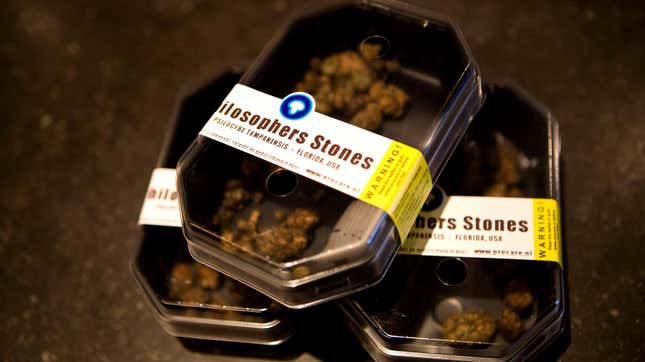
An Elon Musk loyalist is pumping millions of dollars into researching hallucinogenic drugs at one of America’s most prestigious academic institutions.
Antonio Gracias, the founder, CEO and chief investment officer of Valor Equity Partners since 1995, is giving Harvard $16 million to study psychedelics in society and culture via the Gracias Family Foundation, the university announced yesterday (Oct. 16).
“Harvard is the ideal place to explore the topic of psychedelics from new angles and to craft a framework for their legal, safe, and appropriate impact on society,” Gracias, who was a director at Tesla from 2007 to 2021, said in a statement. His foundation is interested in the possibilities of using psychedelics for therapeutic use—a conversation that’s even reached the upper echelons of politics, with talk of including funding for psychedelics research in the national defense bill earlier this year.
The interdisciplinary effort across the Faculty of Arts and Sciences, Harvard Law School, and Harvard Divinity School will consider the far-reaching impact of psychedelics through various lenses, including law, policy, ethics, religion and spirituality, the nature of consciousness, and art and literature.
Quotable: A visionary gift
“This is a visionary gift, in that it is the first to take the so-called psychedelic renaissance beyond medicine, by recognizing the importance of the humanities in exploring the impact and potential of these remarkable substances.”
—Michael Pollan, professor of non-fiction in Harvard’s Creative Writing program and the university’s first Lewis K. Chan Arts Lecturer
A non-exhaustive list of how Harvard will use Gracias’ $16 million gift
🧑🏫 Back an endowed professorship
💼 Host seminars, public-facing events, and a world-class conference
🌀 Support the growth of existing programs. They include the Center for the Study of World Religions’ (CSW) Transcendence and Transformation Initiative, which studies psychedelics as they relate to altered states of consciousness, the relationship of mind and matter, and the global history of spirituality and religion. Another is Harvard Law School’s Project on Psychedelics Law and Regulation (POPLAR), which examines the ethical, legal, and social implications of psychedelics in research, commerce, and therapeutics
👩🏻🎓 Fund a new set of fellowships—both at the Mahindra Humanities Center and CSWR—between Harvard and the University of California, Berkeley
One more thing: Gracias’ Musk connection
Gracias, who has held Musk’s hand through many milestone moments, including Tesla’s IPO in June 2010 and the tumultuous Twitter buy, wasn’t just a business associate. He’s a friend, too.
During 2022 testimony in the case dealing with the Tesla chief’s exorbitant pay package, Gracias described vacationing with Musk’s family in the Bahamas, and having spent President’s Day weekend with Elon, his brother Kimbal, and their families for nearly a decade. Gracias, who was a groomsman at Kimbal’s wedding, revealed that the three have attended each other’s kids’ birthday parties and even spent Christmas together.
Whether or not he chatted with Elon Musk before approaching Harvard isn’t publicly known, but there’s plenty of evidence that Musk would approve of Gracias’ donation. The world’s richest man, who helms SpaceX, Twitter, Starlink, The Boring Company, and more in addition to Tesla, microdoses the psychedelic drug ketamine to treat depression and occasionally takes full doses when he attends parties, the Wall Street Journal reported in June. At a 2021 conference, the billionaire was vocal in his support for the therapeutic use of psychedelics.